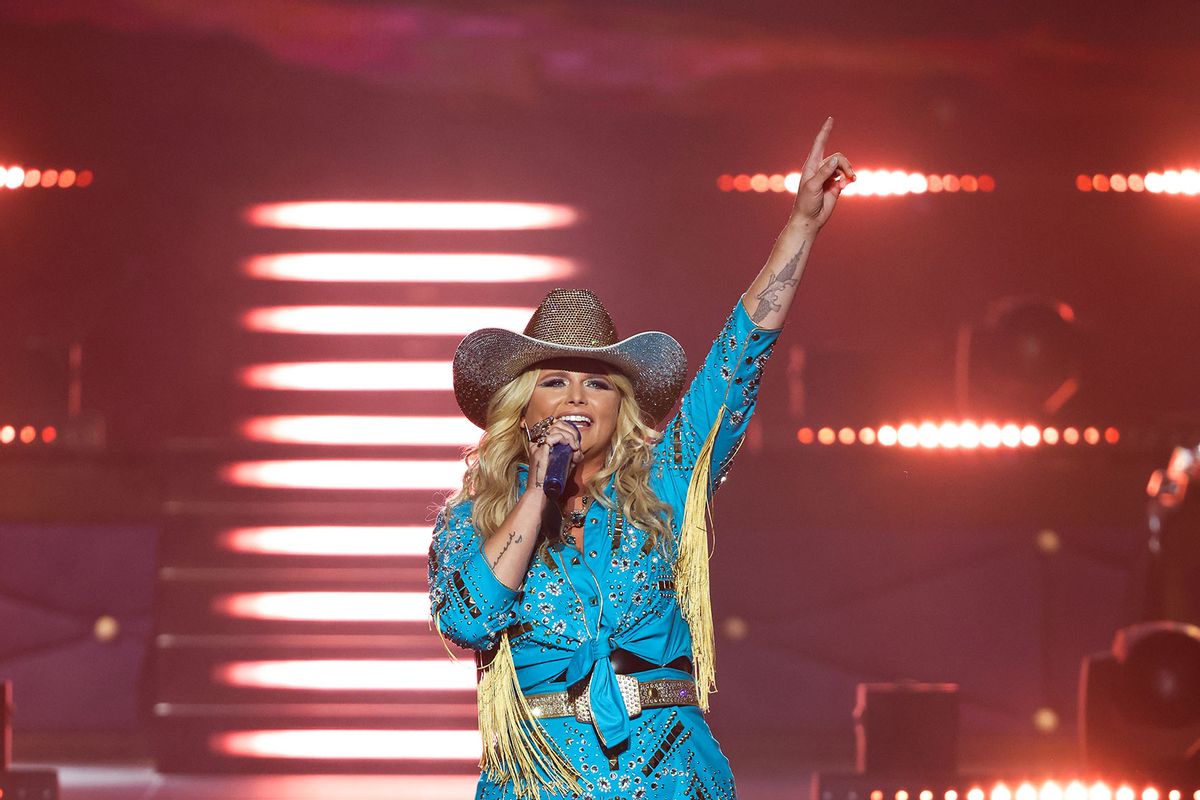Country music’s matriarch Miranda Lambert is in hot water after a group of fans snapped a photo during her Las Vegas residency show and the singer stopped mid-song to call out their selfie, triggering an onslaught of criticism directed at the singer’s reaction.
When the flash went off, Lambert halted the show during her intimate ballad “Tin Man” to say, “These girls are worried about their selfie and not listening to the song. It’s pissing me off a little bit.” Scathing outrage on social media aimed at Lambert later ensued. People on Twitter commented, “Damn maybe y’all throwing things at the wrong singers,” referring to the latest puzzling trend of fans tossing objects not just on stage, but at the performers themselves.
One of the fans whom Lambert called out also went on “Good Morning America” to defend themselves. She said the interaction with the singer felt like they were back in school and “me and my friends did something that annoyed the teacher and she scolded us so she told us to sit down.”
Lambert’s irritated response is open to interpretation. On one hand, publicly calling out and policing how concertgoers have fun – when they’re not harming anyone – seems a bit harsh. On the other hand, had the fans taken a selfie during a fun, upbeat song that probably would’ve gone unnoticed. However, they snapped the pic with flash during a slow ballad, when any interruptions or distractions could ruin the mood.
In the past, an artist could say such a comment, and it would soon be forgotten. But fandom has not only created its own space on social media – every moment, good or bad, is captured and shared – but also has become entitled to the point of making demands on performers and their behavior. This speaks to a certain recent pattern we’ve seen between fans and their increasingly disturbing parasocial relationship with celebrities. This case amplifies the ongoing conversation surrounding concert etiquette and our boundaries with performers.
Some say that the pandemic has directly affected this relationship, causing the line between performer and fan to slowly erode. And like Lambert but to a more extreme extent, there have been other instances of celebrities lashing out at fans. Steve Lacey smashed a disposable camera thrown at him and halted his show mid-performance during his tour. Kid Cudi walked off stage at Rolling Loud Miami after festivalgoers repeatedly launched items at him. Patti LuPone told audience members to “get the f**k out” because they didn’t mask up in a theater.
On the flip side, there have been many instances of fans throwing things at the performers themselves, Salon reported earlier this month. Bebe Rexha needed stitches after an audience member threw their cell phone at her head during a recent performance. Singer-songwriter Pink was aghast while performing when one fan chucked a bag reportedly containing their dead mother’s ashes onstage. The day before, the she was gifted a cheese wheel.
Whether these interactions are intended to be violent or not, the cumulative effect is the same. It’s created a tense and particularly harsh environment for performers who are no doubt more on guard with their fans. These days it seems that the musician just can’t perform to their fans but also must keep a close eye on them for safety reasons. The country star hasn’t issued a statement but if she does, while she might apologize for her behavior . . . she could also cite the recent atmosphere of fans crossing the line. It’s safe to bet that she won’t be the last performer having to call for some sort of order from stage.
We are free of the rigidity of peak pandemic lockdown but the accessibility to celebrities that it gave us virtually is no longer the norm. We have returned to seeing untouchable people on stages for concerts, films and other events but somehow the unspoken social contract that we had agreed upon previously seems to no longer apply. Regardless of how we feel about Lambert’s position as a celebrity or the incident in general, it’s time as audience members to decide if we have a larger responsibility to uphold this unspoken social contract of respect and safety.
Read more
about this fan culture

